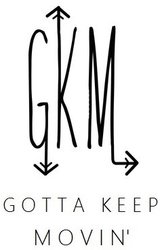The Exhaustive Guide to Planning Your Next Road Trip
Author: TheHipmunk
This post was posted by TheHipmunk on Hipmunk’s Tailwind blog on February 19th 2016.

There’s nothing quite like the open road! It’s tempting to just get in the car and hit the highway, but road-trips are a significant investment of time and energy, and certain amount of planning can ensure you recoup that investment. Adequate preparation can also help maintain a positive state of mind, so you can both soak in the experiences and roll with the punches. So whether it’s a four-day jaunt with some college buddies or a four-month, bi-coastal trip from New York to San Francisco, here are some things to keep in mind in anticipation of the next great adventure!
The Route
While it’s not essential to know where you’re going, it certainly helps with planning. Geographic preferences aside, there are two essential questions to answer. The first: “Where do I want to sleep?” Hotels and campgrounds, especially in or near National Parks, often fill up weeks or months in advance. Do some research and book ahead if necessary to make sure you have somewhere to lay your head at the end of a long day on the road. Once you have an idea where you’ll be sleeping, begin to string locations together into a feasible route.
This brings us to the second essential question: “How long do I want to spend on the road each day?” Covering mileage is important, and it’s tempting to want to blitz the route, but too many long days in a row can wear you down and have a negative impact on the overall trip experience. A good rule of thumb for planning purposes is to keep highway driving under 500 miles daily, or roughly eight hours on the road. Keep in mind that you’ll need to make stops for food, gas, restrooms, stretching, awe-inspiring vistas, etc. Build enough flexibility into the schedule to stop at random roadside attractions, or spend an extra night or two somewhere unexpected. In short, schedule in some breathing room. You’ll thank yourself for it later!
The Car
Automobiles are not magic; they are complicated pieces of machinery that will take care of you if you take care of them. Make sure you or a professional gives the car a thorough inspection before taking off. It’s a good idea to learn how to keep an eye on essential things while on the road, like oil level, engine coolant, and tire-wear. This isn’t just for your car’s health — it’s for your own safety!

The Stuff
Daily life in a fully-packed car can get stressful; everything is in the way of everything else! There’s plenty of ideas out there for how to pack efficiently, and staying organized can bring peace of mind. In order to minimize stress on the road, try to think through everything you’ll need for a typical day, and strategize where to store things accordingly. Snacks and paper towels? Keep them in arm’s reach from the driver’s seat. Flashlight? Put it somewhere easily locatable in the dark. Bag for dirty laundry? Keep that buried! And try to be consistent about where everything lives, so you don’t have to tear the car apart to find your chapstick.
Having trouble starting on that packing list? The below essentials will form the core of a good road trip kit.
- A standard first-aid kit
- A high-visibility jacket for roadside emergencies
- A real flashlight, not the one on your phone (save the battery for emergencies!)
- Paper maps in case there’s no GPS available
- A roll of paper-towels, which are useful as plates, napkins, tissues, spill-absorbers, etc.
- Baby wipes for a quick and easy way to feel refreshed
- Ear plugs for resting in noisier locations
- A power-inverter to make charging multiple electronic items at once much easier
- A multi-tool for quick repairs (and because you never know what else you’ll need!)
The Adventure
One often-overlooked aspect of road tripping is personal hygiene and wellbeing. Don’t forget to take care of yourself! You’ll want to maintain your physical and emotional health throughout the trip, so you can more fully enjoy your experience. Non-perishable snacks – especially proteins and oats (nuts, granola bars, jerky, etc.) – are great for staying fed, but don’t forget the high-fiber greens and fruits. Buy fresh fruit and vegetables to snack on along the way to avoid spoilage. Eat your colors, and stay stay hydrated! Keep at least a gallon of water in the car, as getting caught without drinking water can be dangerous. Try to eat something soon after waking to keep your energy up throughout the day.
Your mental health is equally important. Long days on the road can feel grueling at times, especially if traveling along. Be sure to monitor your stress, and do whatever’s helpful to stay calm and happy. Load up on podcasts or audiobooks, and ask friends to make playlists! You know best what makes you happy, so don’t get let the destination distract you from taking care of yourself. Be healthy, have fun, and drive safe!

Leave a Reply